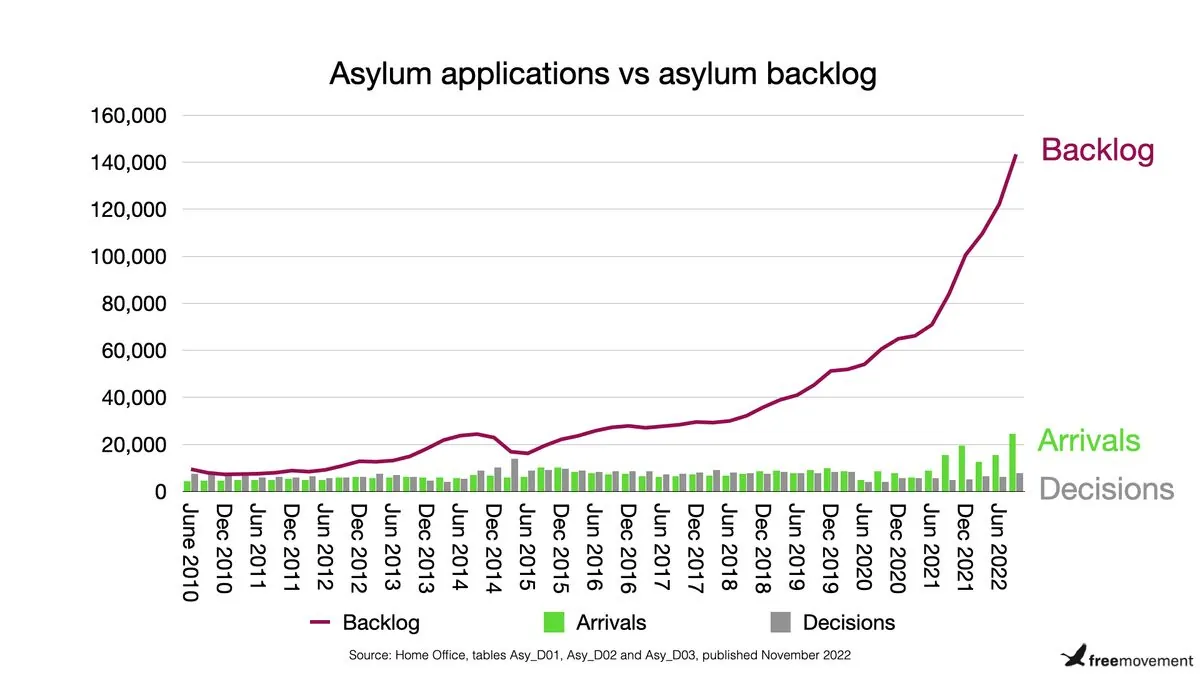UK Asylum Grants Hit Record High Amid Surge in Citizenship Applications
UK asylum grants reach unprecedented levels, tripling from previous year. Citizenship applications soar to 50-year high, reflecting changing immigration landscape and policy shifts.

The United Kingdom has experienced a significant surge in asylum grants, reaching unprecedented levels since record-keeping began nearly four decades ago. Official data released on Thursday reveals that 67,978 asylum claims were approved by the Home Office in the year leading up to June 2024, more than tripling the 21,436 approvals from the previous year.
This substantial increase surpasses even the asylum crisis of the early 2000s, marking a pivotal moment in the UK's immigration landscape. The Home Office, established in 1782 and responsible for immigration and security, processed nearly 92,000 initial asylum claim decisions during this period—the highest in two decades.
The approval rate for asylum claims or other forms of humanitarian protection stood at 58%, a decrease from 71% in the previous year. This reduction is attributed to the Conservative government's tightening of regulations. It's worth noting that before the pandemic, the "grant rate" typically hovered around one-third of applications.

The surge in approvals can be partially attributed to the introduction of fast-track schemes and a tripling of caseworkers by former Prime Minister Rishi Sunak. These measures were implemented to address a significant backlog of cases, aligning with Sunak's pledge to "abolish" the list. In December 2022, a one-year deadline was set to clear 92,000 historic cases, including applicants from "fast track" nations.
Interestingly, migrants arriving via Channel crossings accounted for over a third of the decisions—35,176 cases, more than quadrupling the 7,888 from the previous year. This increase reflects the ongoing challenges faced by the UK in managing irregular migration routes.
The surge in asylum grants has had a notable impact on the UK's case backlog, which decreased by almost a third from 175,457 in June 2023 to 118,882 in June 2024. However, it's important to note that the backlog has seen a slight increase since April, as the previous government paused processing to focus on detaining migrants for potential deportation to Rwanda.
"Labour has now lifted the bar on processing migrants who were earmarked for deportation to Rwanda and instead opened the way for them to claim asylum in the UK."
Concurrent with the rise in asylum grants, the UK has witnessed a remarkable increase in citizenship applications. In the year ending June 2024, 246,488 individuals were granted British citizenship—a 37% increase from the previous year and the highest level in over five decades. This figure is equivalent to the population of cities like Rotherham or Plymouth and is ten times the 23,146 recorded when records began in 1962.
Immigration experts suggest that this surge in citizenship applications may be linked to concerns stemming from Brexit, with settled migrants seeking to solidify their status in the UK. The most common non-EU nationalities granted citizenship were Indian (22,263), Pakistani (19,491), and Nigerian (10,905), while Italian nationals led among EU citizens with 13,188 grants.
The UK's immigration landscape continues to evolve, with recent policy changes impacting various visa categories. The number of visas issued for work, study, and family reunification decreased by 14% overall. Notably, foreign student numbers fell by 13% to 432,225 in the year to June 2024, with a significant 81% reduction in student dependent visas in the first half of 2024.
As the UK navigates these complex immigration challenges, it's crucial to remember the historical context. The country's asylum system, established by the 1951 Refugee Convention, has undergone numerous changes over the years. From the introduction of the points-based immigration system in 2008 to the recent Nationality and Borders Act 2022, the UK continues to adapt its policies to address evolving migration patterns and national priorities.

"Today's stats show the chaos the Tories left in our immigration and asylum system. Since 2019, net migration trebled to a record high."
The current situation reflects the ongoing debate surrounding immigration and asylum policies in the UK. As the country continues to grapple with these complex issues, it remains to be seen how future policy decisions will shape the landscape of migration and citizenship in the years to come.


































